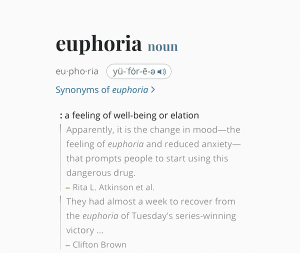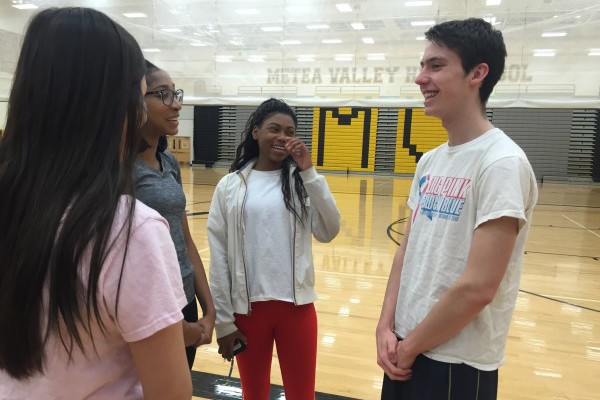[quote]By Drew Danko
Online Editor
Photo by Madie Sandberg (MV Yearbook)[/quote]
As a freshman, I remember being terrified of the older juniors and seniors. Trying to differentiate the H’s from the D’s, carrying every textbook I owned, and wearing my cargo shorts, I tried my hardest not to get squashed under my elders’ seemingly much larger feet.
These fears and the assumption that upperclassmen dislike underclassmen have driven an uncomfortable wedge between the grades. However, after becoming a P.E. leader, I feel that I have made great effort toward breaking through this disconnected boundary.
On the first day leading my sophomores last August, I made an effort to talk to every student in my class. Even though at first these were generally dry, uncomfortable conversations about their summer or new classes, it broke that awkward barrier.
P.E. leaders has given me the opportunity to connect with students I otherwise probably would not have met. By breaking that awkward barrier, it made it easier for me to talk to my students and visa versa. For others in the P.E. leader class, both juniors and seniors, I would encourage you to make an effort to get closer with your students.
If you can’t comfortably speak to someone that is supposed to be your “mentor,” are they really your mentor at all? Getting closer with my students has improved my leadership skills. If you can create a connection with someone, it will push them to buy into what you’re saying. It has helped students listen to me better, become more engaged, and willing to participate in activities. After building a relationships with my students, it made being their P.E. leader much more satisfying. I am able to see them grow and succeed through their struggles.
For some students, swimming is the scariest and most disliked unit in the P.E. curriculum. Rather than yelling at them to get in the pool and swim, I got to know these students in my class. Students who were not even willing to put their face in the water had grown and were swimming comfortably by the end of the quarter because I showed them that I understood why they might not have wanted to swim, but I explained why it is important that they participate in class.
You don’t have to become best friends with them, but show that you’re concerned for your students. Get to know what they’re interested in or involved in: ask them how their volleyball game went, talk to them about their favorite TV show, or simply ask them how their day was. If you can show that you want to talk or speak to them, they won’t be afraid, they’ll want to talk to you too. These casual conversations will teach your student that as a P.E. leader you aren’t a figure of authority or someone they should be afraid of, you are a mentor and role model that students can look up to for guidance and advice. Show your students that you are someone they would want to be like or model after once they are a senior.
Yes, being involved in P.E. leaders is a valuable way to grow leadership skills. However, I believe the best thing I’ve gained from being a P.E. leader is the relationships I’ve built with the sophomores I have taught first and second semester. I always look forward to talking to my students in class, and it is always great when students say “hi” to me in the hallways.
*Disclaimer: This article is categorized as Opinions. The views of this article are that of the writer and do not represent the Stampede staff as a whole and should not be interpreted as a staff editorial.






